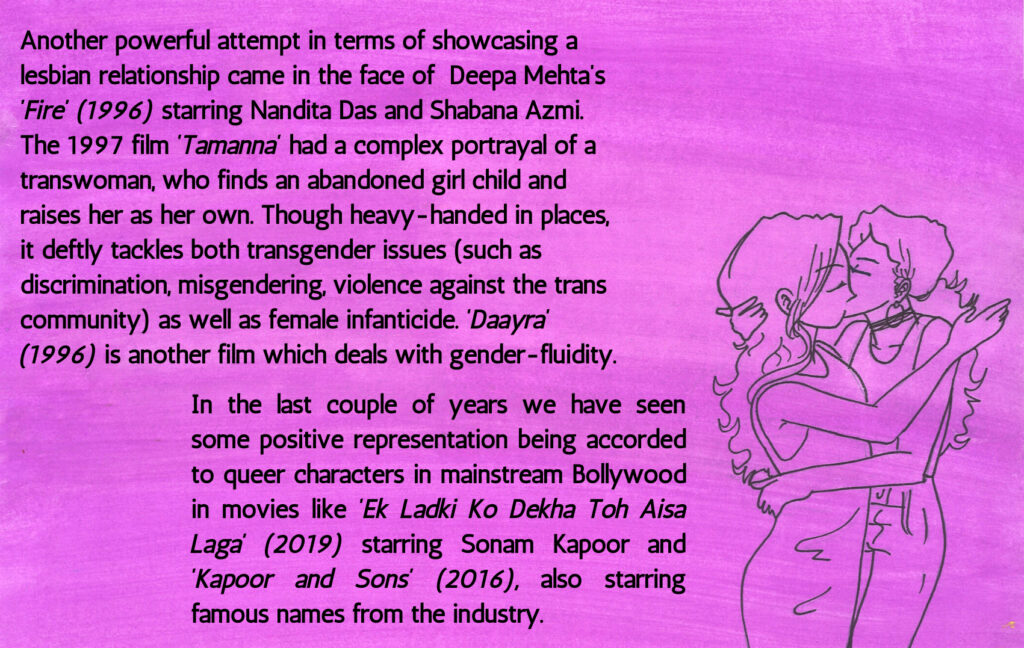By Riya Singh Rathore
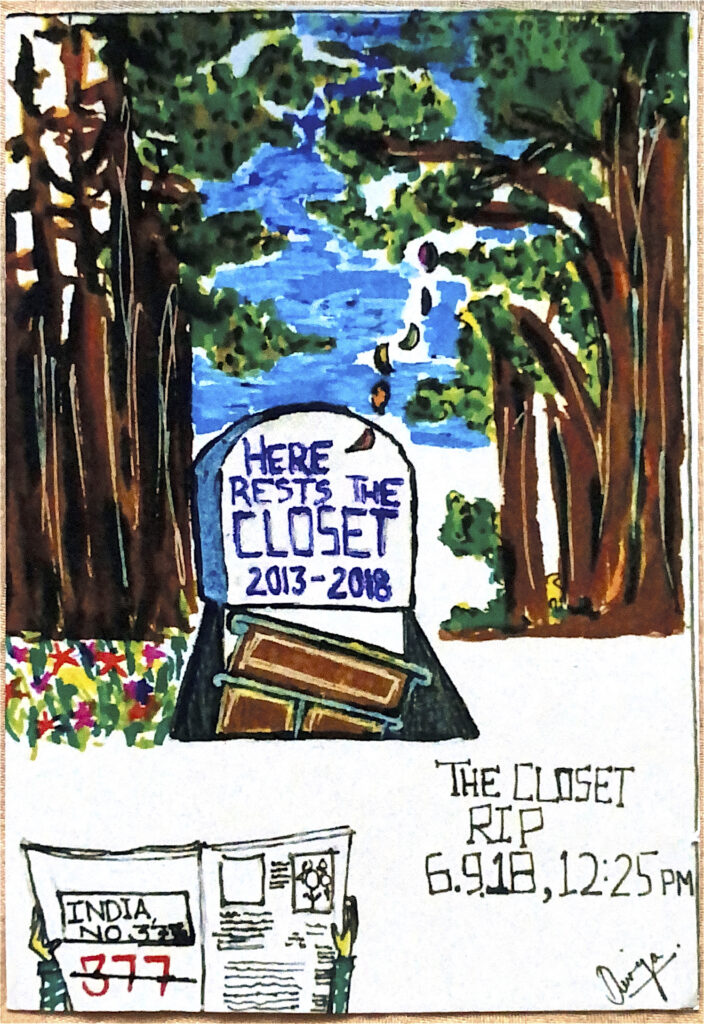
Gargi College is one of Delhi University’s prestigious women’s colleges, tucked in the middle of Siri Fort Road in South Delhi. In 2017, a few students from the college organised a pride parade under the guise of an “Equality March ” given the the Indian Penal Code [IPC] section 377 still criminalised homosexuality. Upward of 200 students with rainbow-painted cheeks gathered in Gargi’s arts quad listening to spoken word performances, an open mic session during which a few students came out. The event finally ended with a march around the college building and the chant: “kaunsa kanoon sabse battar? teen sau sattar, teen sau sattar.” (Hindi for which law is the worst? Three hundred and seventy seven, three hundred and seventy seven.) Following the event’s success, the organisers took to forming an informal queer collective named the White Rose Club.
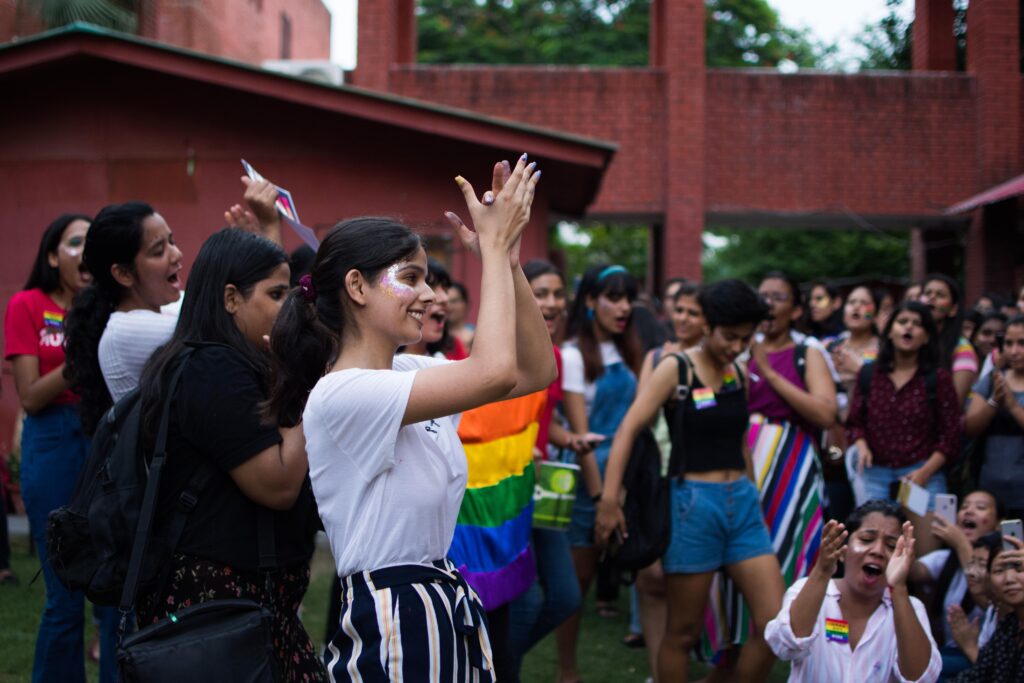
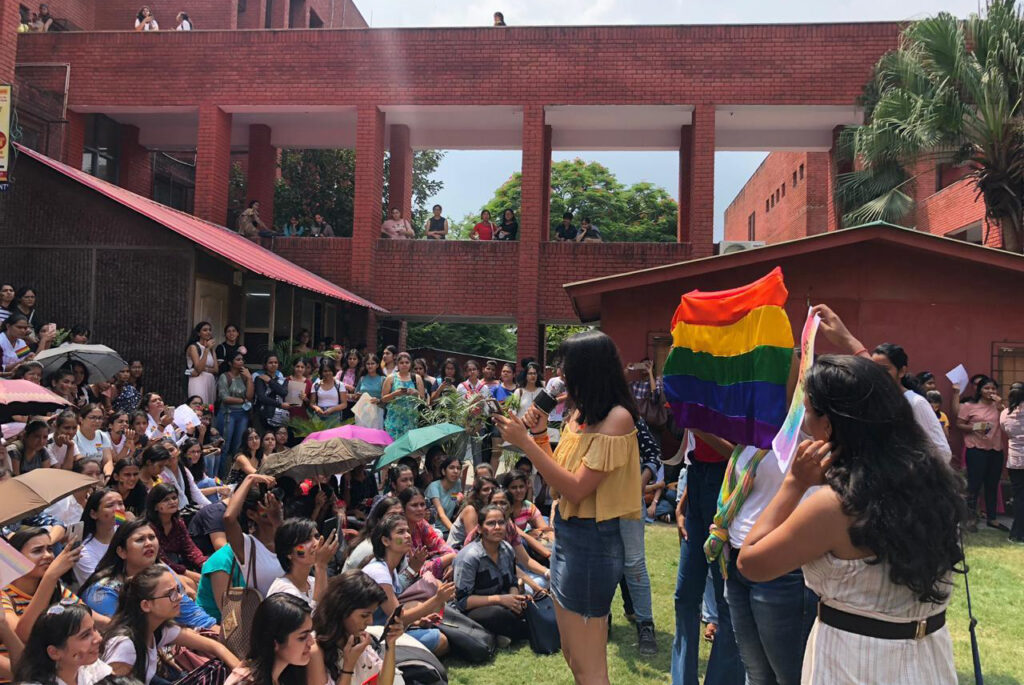
The White Rose Club, in its own words, is a queer rights collective that promotes “unlearning phobia through awareness” (The White Rose Club n.d.). Guided by the idea of democratising access to queer safe spaces for all students of Gargi, the club arranged open mics, queer movie screenings, posted online mental health videos, hosted education seminars, and even produced a three-part documentary series named “Kinnar Economy” (White Rose Club Delhi 2020). In 2020, Gargi College’s (n.d.) administration incorporated the club officially under the Centre for Diversity and Inclusion Cell in order to “address issues of gender orientation and belonging” for queer individuals within the institution.
Now assimilated into the college, today the club has a core team working towards arranging free and democratic events for all the students. The club considers all Gargi students a part of the group by default since there is no stipulated membership system.


Gauri Chopra, one of the team’s core members and a zine contributor, told the author, “Creating any tangible piece of art meant collaborating with other college groups for illustrations, printing, supplies, or admin help. It created a synergy between White Rose Club and the formal college entities like artistic societies, arts departments, even students’ union. We were not just a queer club then but part of a nexus.” (Gauri Chopra, personal communication, 20 June 2021).
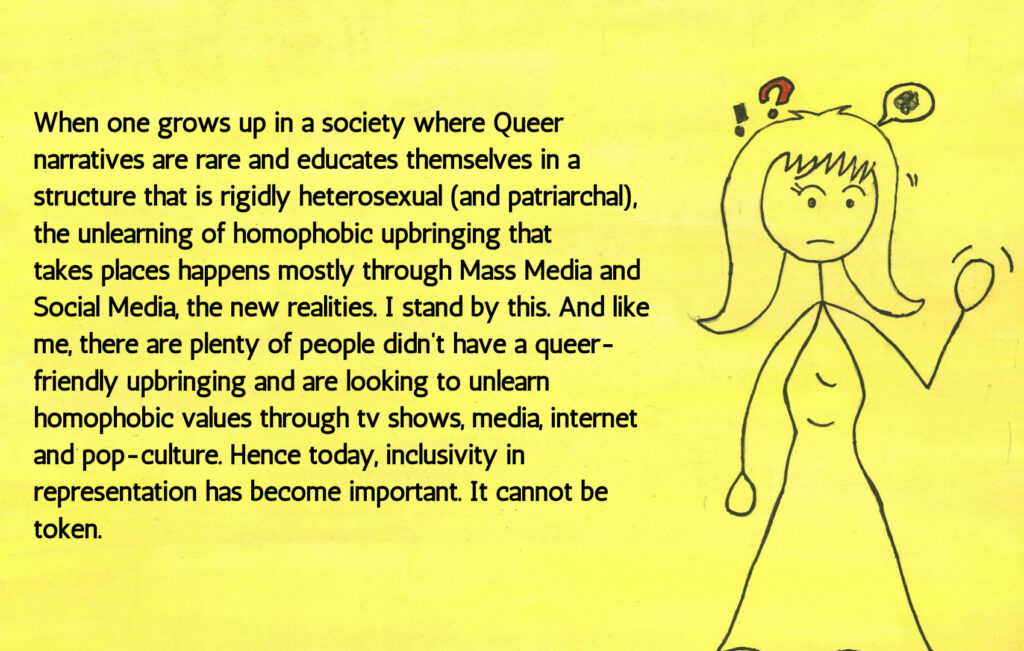
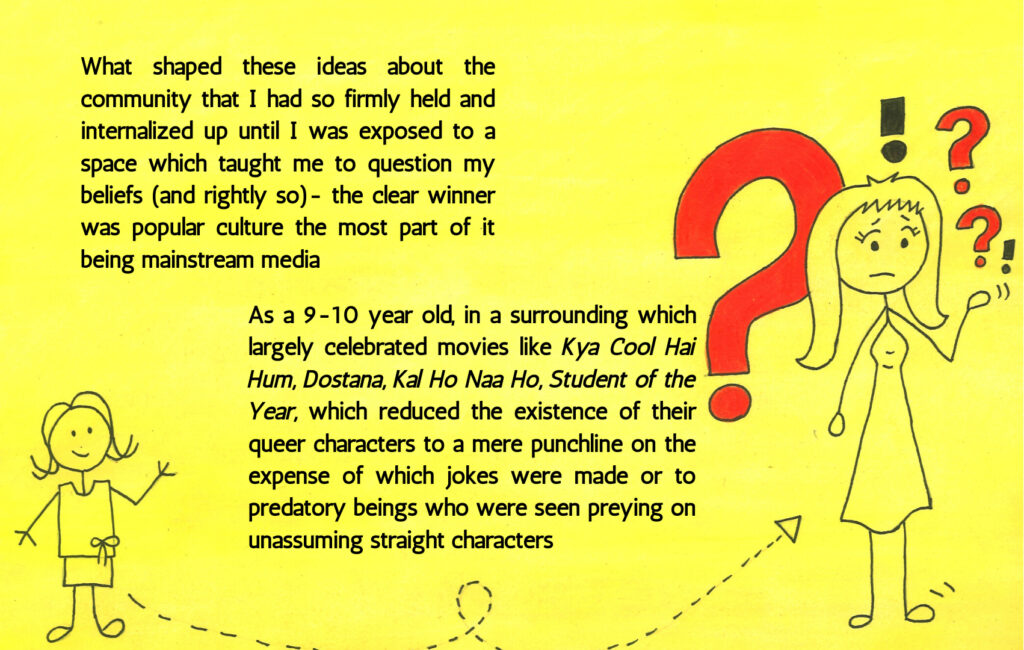
Gunjan Bisht, the current president of WRC, says it is different managing things online after the pandemic. “I’ve personally never dealt with the administration like the seniors before but our goals remain the same. The aim is to make everyone feel comfortable, make the online space more intersectional, and embrace all the queer students within Gargi.” Talking about the club’s plethora of activities including lives and open seminars with queer activists and scholars on Instagram, which has become their primary platform, Gunjan adds, “Instagram is our own. We don’t need permissions and application approvals to host our guests. Things have been easy that way. Freshers who have never been to the college in person also know about the club through our virtual interaction with them.” (Gunjan Bisht, personal communication, 20 June 2021).

When asked if having a queer collective truly makes any difference, both team members recount their personal experiences in saying that their school experience was rife with queerphobia. Gunjan mentions, “Having the club helped me with my journey of self-acceptance. It was a safe space away from my town, my acquaintances, and other conservative spaces that I have otherwise existed in. The club also helped me look beyond the ‘love is love’ stereotype and realise how intersectional the queer community is in terms of trans rights, gender identity, caste’s role in queer politics and so forth. It has made me a better, more nuanced, individual.”
Zine by Avni Singh Chauhan, Nandini Chaturvedi, Gauri Chopra, Vartika Gaur, Astha Ojha, Shivangi Singh, and Urmika Yash
Gauri echoed this sentiment, stating that even though she did her schooling in Delhi while Gunjan did hers in a smaller town, there were no differences in approach to queer rights as a whole. “I feel as though all school are homophobic to some degree, queer rights are an alien idea. I was surprised when I came to college and saw people openly discussing LGBTQI+ issues. That trend only continued as I joined WRC and watched my batchmates more frequently have such conversations. It was a completely different set up from school, having a space like that helped me overcome my own internalised homophobia.”
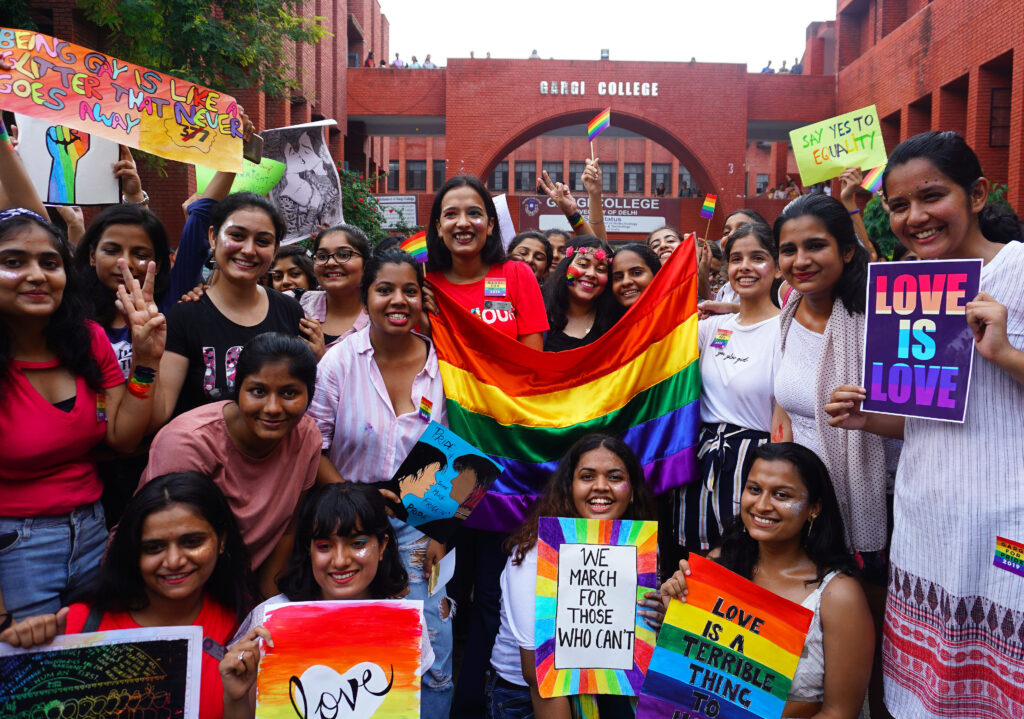
Endnotes:
Gargi College. (n.d.). “Centre for Diversity and Inclusion.” Accessed 22 July 2021, https://gargicollege.in/centre-for-diversity-and-inclusion/.
The White Rose Club. (n.d.). “Home.” Accessed 22 July 2021, https://www.instagram.com/thewhiteroseclub/?hl=en.
White Rose Club Delhi. (2020). “Kinnar Kaam Kyun Nahi Karte? | The Kinnar Economy (Part 1).” Youtube, 26 July 2020. Accessed 22 June 2021, https://youtu.be/yGZLSS2OZEk.



